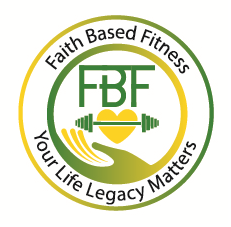The Core Essentials: Foundations for a Fulfilling Life
The Core Essentials: Foundations for a Fulfilling Life


In the tapestry of human existence, there are threads so fundamental that they form the very fabric of our lives. These Essentials, often overlooked in the hustle and bustle of daily routines, are the bedrock upon which we build our experiences, relationships, and ultimately, our happiness. This essay explores these core essentials, delving into their significance and how they shape a fulfilling life.
The Essence of Health: Physical Well-being
Health is often described as wealth, a cliché that holds a profound truth. Our physical well-being is the cornerstone of our capacity to enjoy life and pursue our aspirations. Without good health, even the most ambitious goals can become insurmountable challenges. A robust state of physical health is maintained through a balanced diet, regular exercise, adequate sleep, and preventive healthcare.
A balanced diet fuels our bodies with the necessary nutrients, enhancing our energy levels and overall functionality. Exercise, on the other hand, not only keeps us fit but also releases endorphins that uplift our mood. Sleep, often underestimated, is vital for repairing the body and mind, ensuring we wake up rejuvenated and ready to tackle the day. Preventive healthcare, including regular check-ups and vaccinations, helps in early detection and management of potential health issues, safeguarding our well-being.
The Power of Mental Health: Psychological Resilience
Equally important as physical health is mental health, which encompasses our emotional, psychological, and social well-being. Mental health affects how we think, feel, and act, influencing how we handle stress, relate to others, and make decisions. In an era where stress and anxiety are rampant, maintaining mental health has become more critical than ever.
Building mental resilience involves practicing mindfulness, engaging in activities that bring joy, and seeking professional help when needed. Mindfulness helps in staying grounded and focused, reducing the impact of stress. Engaging in hobbies and activities that spark joy can serve as a therapeutic outlet, providing a sense of accomplishment and relaxation. Additionally, seeking help from mental health professionals should never be stigmatized, as therapy and counseling can offer invaluable support and coping strategies.
The Vitality of Relationships: Social Connections
Humans are inherently social beings, and our relationships form a crucial part of our existence. Strong, healthy relationships provide emotional support, improve our sense of belonging, and contribute to our overall happiness. These relationships can be with family, friends, colleagues, or romantic partners.
Nurturing relationships requires effort, empathy, and communication. Spending quality time with loved ones, expressing appreciation, and actively listening can strengthen bonds and foster deeper connections. Empathy allows us to understand and share the feelings of others, building a foundation of trust and mutual respect. Effective communication, characterized by honesty and clarity, helps in resolving conflicts and maintaining harmony.
The Pursuit of Knowledge: Lifelong Learning
Knowledge is an empowering tool that shapes our understanding of the world and our place within it. The pursuit of knowledge should not be confined to formal education but should be a lifelong endeavor. Continuous learning keeps our minds active, enhances our skills, and opens up new opportunities.
Engaging in lifelong learning can take various forms, such as reading, attending workshops, enrolling in online courses, or simply exploring new hobbies. This constant quest for knowledge not only enriches our personal and professional lives but also keeps us adaptable in an ever-changing world. The curiosity to learn and the willingness to challenge our perspectives contribute significantly to our personal growth and fulfillment.
The Impact of Purpose: Meaningful Goals
A sense of purpose acts as a guiding star, giving direction and meaning to our lives. Purposeful living involves setting meaningful goals and striving to achieve them, which in turn provides a sense of accomplishment and fulfillment. These goals can be related to career, personal development, relationships, or contributions to society.
Identifying one’s purpose often requires introspection and self-awareness. It involves understanding our passions, values, and strengths. Once identified, pursuing these goals with dedication and resilience can lead to profound satisfaction. Purpose-driven individuals often experience greater motivation, focus, and contentment, as their efforts are aligned with their deeper values and aspirations.
The Art of Financial Stability: Economic Security
Financial stability is a crucial aspect of a secure and comfortable life. It provides the means to meet basic needs, such as food, shelter, and healthcare, and enables us to plan for the future. Financial security reduces stress, increases our capacity to take risks, and allows us to enjoy life without constant worry about money.
Achieving financial stability requires prudent financial management, including budgeting, saving, and investing. Budgeting helps in tracking income and expenses, ensuring that we live within our means. Saving creates a safety net for emergencies and future needs, while investing helps in growing wealth over time. Financial literacy, which involves understanding financial principles and making informed decisions, is essential for maintaining long-term economic security.
The Importance of Environment: Sustainable Living
Our environment, both natural and built, plays a significant role in our quality of life. A clean, safe, and nurturing environment enhances our well-being, while environmental degradation can have detrimental effects on health and happiness. Sustainable living, therefore, is an essential component of a fulfilling life.
Sustainable living involves making choices that reduce our environmental footprint, such as conserving energy, reducing waste, and supporting eco-friendly products and practices. It also includes advocating for policies and practices that protect the environment. By adopting sustainable habits, we contribute to the well-being of our planet and ensure a healthier, more vibrant future for ourselves and generations to come.
The Influence of Culture: Identity and Expression
Culture shapes our identities, values, and the way we perceive the world. It encompasses our traditions, customs, languages, arts, and social behaviors. Embracing our cultural heritage and appreciating the diversity of other cultures enriches our lives and broadens our perspectives.
Cultural engagement can take many forms, such as participating in traditional celebrations, learning about different cultures, and expressing oneself through art, music, or literature. This engagement fosters a sense of belonging and pride in one’s heritage while promoting tolerance and understanding among diverse communities. Cultural experiences also stimulate creativity and innovation, enhancing our personal and collective growth.
The Role of Technology: Enhancing Life
In the modern world, technology is an integral part of our daily lives, influencing how we communicate, work, and entertain ourselves. While it offers numerous benefits, such as convenience, efficiency, and connectivity, it also poses challenges, including privacy concerns and the potential for digital addiction.
Harnessing the power of technology involves using it Essentials Hoodie and mindfully. This includes setting boundaries to prevent overuse, ensuring online safety, and leveraging technology for positive purposes, such as education, innovation, and social good. By integrating technology thoughtfully into our lives, we can enhance our productivity, stay connected with loved ones, and access a wealth of information and opportunities.
The Practice of Gratitude: Appreciating Life
Gratitude is a powerful practice that shifts our focus from what we lack to what we have. It involves recognizing and appreciating the positives in our lives, whether they are big or small. Practicing gratitude can improve our mental health, enhance our relationships, and increase our overall happiness.
Developing a habit of gratitude can be achieved through simple practices, such as keeping a gratitude journal, expressing thanks to others, and taking time to savor joyful moments. By acknowledging the good in our lives, we cultivate a positive outlook and a deeper appreciation for the present, which can lead to greater contentment and resilience in the face of challenges.
The Significance of Community: Collective Strength
Being part of a community provides a sense of belonging and support. Communities offer a network of relationships and resources that can enhance our personal and collective well-being. They can be based on geography, interests, or shared values and goals.
Active participation in a community fosters social connections, mutual aid, and a sense of shared responsibility. It involves contributing time, skills, and resources to support communal goals and help those in need. A strong community can provide emotional support, practical assistance, and a platform for collective action, making it an essential aspect of a fulfilling life.
The Pursuit of Creativity: Expressive Freedom
Creativity is a vital aspect of human expression and innovation. It allows us to explore our imagination, express our emotions, and bring new ideas to life. Engaging in creative activities, whether through art, music, writing, or any other form of expression, enriches our lives and nurtures our souls.
Creative pursuits provide an outlet for self-expression and a means of processing emotions and experiences. They also foster problem-solving skills, enhance cognitive abilities, and offer a sense of accomplishment. Encouraging creativity in ourselves and others contributes to a vibrant, dynamic society and opens up endless possibilities for personal and collective growth.
The Practice of Self-care: Prioritizing Well-being
Self-care is the practice of taking deliberate actions to maintain and improve our physical, mental, and emotional health. It involves recognizing our needs and making time for activities that nurture our well-being. In a fast-paced world, self-care is essential for preventing burnout and maintaining a balanced life.
Self-care practices can include physical activities, such as exercise and healthy eating, as well as mental and emotional activities, such as meditation, hobbies, and spending time with loved ones. Setting boundaries, saying no when necessary, and seeking help when needed are also important aspects of self-care. By prioritizing our well-being, we build resilience and create a foundation for a fulfilling and sustainable life.
Conclusion: Embracing the Essentials
The core essentials of life—health, mental well-being, relationships, knowledge, purpose, financial stability, environment, culture, technology, gratitude, community, creativity, and self-care—form the foundation of a fulfilling and meaningful existence. By recognizing and nurturing these essentials, we can enhance our overall well-being and create a life that is rich in experiences, connections, and satisfaction.
Embracing these essentials requires conscious effort and a commitment to personal growth. It involves making deliberate choices, seeking balance, and continuously striving to improve ourselves and our circumstances. In doing so, we not only enrich our own lives but also contribute to the well-being of those around us and the broader society.
Ultimately, the pursuit of a fulfilling life is a journey, not a destination. It is a continuous process of learning, growing, and adapting to the ever-changing dynamics of the world. By grounding ourselves in these core essentials, we can navigate this journey with purpose, resilience, and joy, creating a legacy of well-being and fulfillment for ourselves and future generations.









